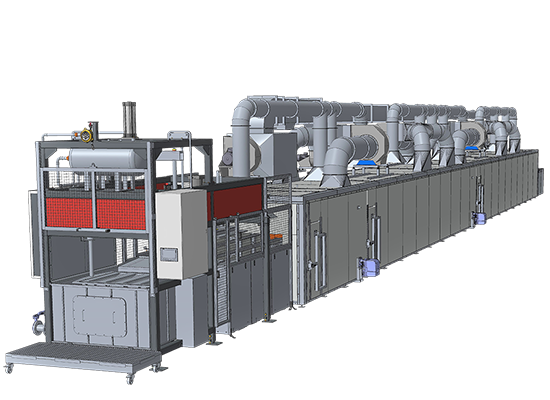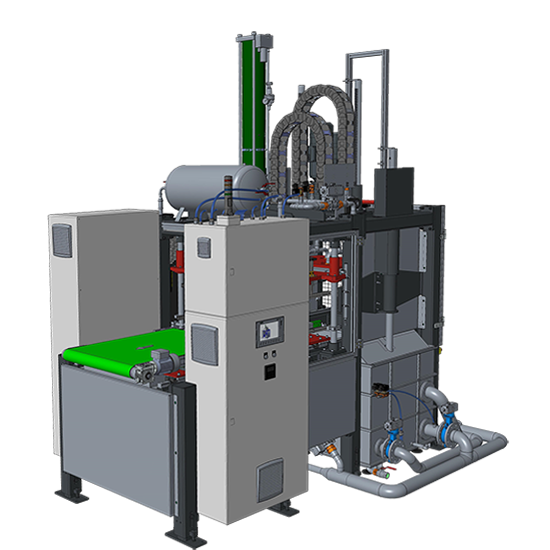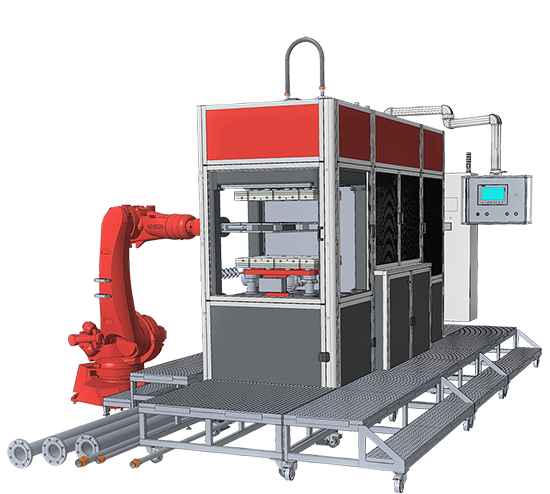
PAPER PULP MOLDING MACHINES
ABOUT TRIDAS TECHNOLOGY
TRIDAS Technology is a specialised manufacturer of molded fiber machinery and pulp molding lines. We design, build and install complete production lines for molded fiber packaging and fibre-based thermoforming, often as an attractive alternative to plastic parts made on an injection molded machine or injection press.
As part of the TRIDAS Group – European leading molded fiber producer – we combine more than 20 years of production experience with in-house machine building. All technologies we supply have been tested and optimised in our own multi-shift operations, which ensures high reliability, stable output and low operating costs.
Our engineering and design teams develop both the machines and the production tooling set. We use proven European components and manufacture all stock-contact parts from stainless steel. This results in robust, low-maintenance equipment with long service life.
Today, TRIDAS operates more than 25 fully automated molded fiber lines in three plants (22,000 m²) and delivers TRIDAS Technology equipment to customers worldwide – including producers who are expanding from traditional plastic injection molding to fiber-based production lines as well as paper mills and pulp converters.
WHY INVEST IN MOLDED FIBER TECHNOLOGY?
Brand owners and converters are under pressure to replace plastic, EPS and foam packaging with sustainable, fibre-based alternatives. Regulations and retailers increasingly favour fiber-based packaging that fits into a circular economy and reduces dependence on plastics.
TRIDAS Technology lines process virgin pulp or recycled paper into high-performance molded fiber products. The material is based on renewable resources, is 100% recyclable and biodegradable, and runs in existing paper recycling streams.
For producers, this brings clear business benefits:

HIGHLY AUTOMATED LINES
SCALABLE, MODULAR SET-UP
PROVEN MULTI-SHIFT RELIABILITY
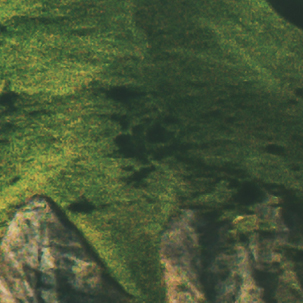
EUROPEAN COMPONENTS & SERVICE
COMPETITIVE TOTAL COST
OF OWNERSHIP (TCO)

DESIGNED TO REPLACE
INJECTION MOLDING
100% RECYCLABLE & BIODEGRADABLE
LOW CO₂ AND NOx EMISSIONS
FITS CIRCULAR ECONOMY
ABOUT OUR PRODUCTION LINES
TRIDAS Technology develops and manufactures complete production lines for molded fiber packaging and pulp thermoforming. Our equipment covers the entire process chain:
- Pulp preparation and stock handling
- Molding / thermoforming section
- Drying, hot-pressing and after-pressing
- Trimming and finishing
- Central control system and automation
Each line is delivered as a modular, fully integrated solution that can be adapted to your product range, capacity requirements and building layout. We integrate energy-efficient drying systems, smart controls and remote diagnostics to achieve high OEE, low downtime and consistent quality – whether the lines run alongside existing injection molded machines or as standalone fiber-based production.
Our molded fiber machines are built from European components with full documentation and service support. All parts in contact with water or pulp are made of stainless steel for long service life and easy cleaning.
Depending on wall thickness, surface quality and target application, we offer three main technology platforms:
- Industrial pulp molding lines (DRY PRESS) – for robust industrial packaging and technical parts
- Paper thermoforming lines (HOT PRESS) – for high-precision trays with premium surface
- Tableware production lines – for paper plates and cup lids that replace current plastic products.
INDUSTRIAL PULP MOLDING LINE CL660 / CL1150
The CL series is a heavy-duty industrial pulp molding line for molded fiber protective packaging. It is designed for converters that need reliable, high-volume production of parts for furniture, steel components, machine parts, engines, electronics and agricultural products – including applications where EPS, foam material or plastic parts from an injection machine are being replaced by fiber.
The line primarily processes recycled paper grades such as cardboard, newspapers and tissue, and can also handle pulp from agricultural residues (e.g. hops, corn, grain).
In the forming section, fibrillated and cleaned stock pulp? is sucked onto the molds. The wet products are transferred to a drying belt and then stacked on pallets. Where higher surface quality is required, products can be re-pressed and trimmed in an additional station.
The CL platform offers:
- robust mechanical design for multi-shift operation
- flexible tooling for different product sizes and geometries
- cost-efficient production of molded fiber industrial packaging that can replace EPS or thermoformed plastic and injection-molded parts


| Max. product size | 1200 x 1000 mm |
| Wall thickness | 1–7 mm |
| Production capacity | up to 250 kg/h (up to 23 mil. pcs/year) |
| Power consumption | 100–180 kWh |
| Natural gas consumption | 25–55 m3/h |
| Water consumption | 150–500 l/h |
| Minimum required area | 750 m2 |
PULP THERMOFORMING LINE KP750
The KP750 is a pulp thermoforming line for high-precision molded fiber trays and components. It is ideal wherever thin walls, complex shapes and premium surface quality are required.
The line uses refined stock based on pure pulp, testliner, kraftliner or tissue. Stock is first formed on a forming mold and then transferred into combined drying and hot-pressing molds. This process delivers:
- smooth, dust-free surfaces
- tight dimensional tolerances
- sharp details and clean edges
Typical applications include molded fiber trays for premium electronics, cosmetics, automotive components and technical parts.
The KP750 thermoforming line is supplied as a fully integrated system, including pulp preparation and 4 to 12 KP750 units. This modular concept allows you to start with a lower capacity and scale up later, or to install a full high-volume line from day one.


| Max. product size | 600 x 500 mm |
| Wall thickness | 0.4–1.5 mm |
| Min. number of machines | 4 x KP750 |
| Max. number of machines | 12 x KP750 |
| Production capacity of KP750 | 13 kg/h (up to 6 mil. pcs/year) |
| Max. production capacity | 155 kg/h (up to 72 mil. pcs/year) |
| Power consumption | 60–80 kWh 1 x KP750 700–950 kWh 12 x KP750 |
| Water consumption | 130 l/h to 400 l/h |
| Minimum required area | 300 m2 |
TABLEWARE PRODUCTION LINE KP DUO930
The KP DUO930 is a high-speed tableware production line for fiber-based plates and paper cup lids that replace plastic items typically produced on injection molded machines.
The line runs on virgin food-grade pulp such as bagasse, bamboo, eucalyptus and softwood or hardwood pulp. Fibrillated and refined pulp is formed on the mold, transferred into drying and hot-pressing molds, and finally trimmed if necessary. For cup lids, drinking holes are punched in the last step.
The KP DUO930 platform offers:
- high output on a compact footprint
- stable process conditions for consistent lid and plate quality
- integrated trimming and finishing – ready-to-pack products straight from the line
The complete tableware line includes pulp preparation and 4 to 8 KP930 thermoforming units, making it suitable for both regional producers and large international groups that want to move cup lids and plates from plastic to fiber-based tableware.
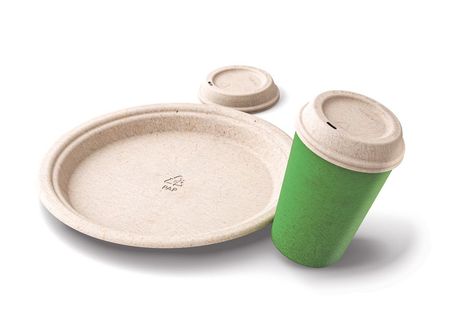

| Max. product size | 850 x 850 mm |
| Wall thickness | 0.4–1.0 mm |
| Minimum number of units | 4 x KP930 |
| Maximum number of units | 8 x KP930 |
| Production capacity of KP930 | 21 kg/h (up to 45 mil. cup lids/year, or 8.5 mil. plates/year) |
| Max. production capacity | 168 kg/h (up to 360 mil. cup lids/year, or 68 mil. plates/year) |
| Power consumption | 90–120 kWh - 1 x KP930 700–1000 kWh - 8 x KP930 |
| Water consumption | 210 l/h to 450 l/h |
| Minimum required area | 500 m2 |
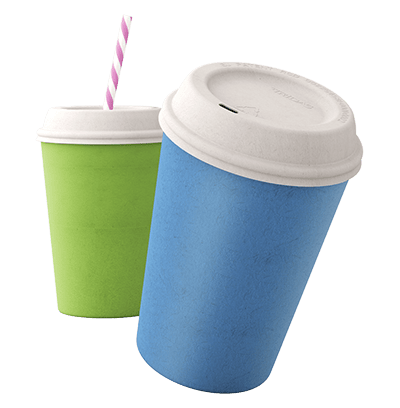
PATENTS – LIDS
Since 2013, TRIDAS has held European design registrations for paper lids for hot drinks (with drinking holes) RCD 002254581-0001 and for paper lids for drinking straws RCD 002254581-0002. Customers who purchase our paper cup lid production line and tooling receive a licence to manufacture these lids up to the installed capacity, offering a certified fiber-based alternative to conventional plastic lids.
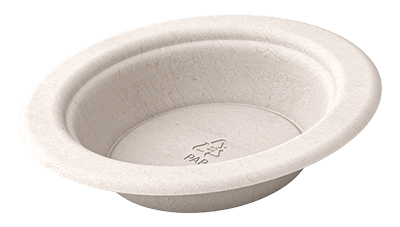
CONTACTS















